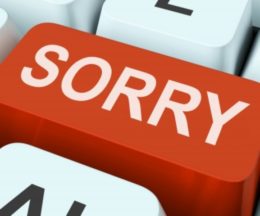


The Political Apology
By Peter Donolo, writing for the Globe and Mail:
As Prime Minister, Justin Trudeau has been uncommonly apologetic.
His apologies for a litany of Canada’s historical wrongs even prompted the venerable BBC to ask “does Justin Trudeau apologize too much?”
That’s one reason his almost defiant decision – to which he’s holding firm – not to apologize in the wake of the federal ethics commissioner’s damning report on the SNC-Lavalin affair had many scratching their heads.
But really, should we be expecting anything else? Demanding political apologies is a contemporary political rite. But to what end? When we get them, are we ever really satisfied? Do they pull politicians out of hot water, or plunge them in ever deeper?
I’ve spent three decades both advising and observing political leaders. And with all due respect to political scientists, it’s clear to me that politics is far more an art than it is a science. So let’s look to another of the lively arts – in this case, music – for a typology of the political apology. What works, what doesn’t and why.
THE ELTON JOHN PRINCIPLE
Sorry Seems To Be the Hardest Word is more than the title of an early Elton John hit; it’s a concise descriptor of the politician’s dilemma.
In truth, humility and introspection are not the natural common characteristics among politicians – least of all, the successful ones. For that reason alone, there is not a natural disposition to apologize.
For the rest, click here.